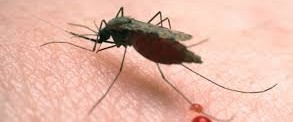To be able to reduce maternal mortality, two conditions should be met: Staff should be able to carry out comprehensive emergency obstetric care, and these services should be available to and used by the pregnant women.
About six months ago, we started to do caesarean sections at Saula Hospital in the inner part of Gamu Gofa. About 800.000 people live in these remote mountains.
Saula Hospital is a new hospital, which had not done any surgery before. We trained two operators (four months), two anaesthetist nurses (three months) and two scrub nurses. In addition we equipped the hospital with surgical instruments, an oxygen concentrator, suction machines and resuscitation equipment. Two experiences staff from Arba Minch Hospital taught the hospital staff how to handle and sterilize surgical equipments.
Our experience shows:
- It is possible to start emergency obstetric services, including operations such as caesareans sections and repair of uterine ruptures at places such as Saula. Non-specialists did the operations.
- The midwives correctly use partographs.
- Our review shows the indications to do surgery were correct. I believe the operations have saved many lives of mothers and neonates.
- Many women have severe complications already at admission to the hospital. This explains the high CS rate of about 20 %. It underlines that pregnant women in this remote part of Ethiopia come late for treatment.
- The number of uterine ruptures is high.
- Because of the late treatment, several of the women have developed vesico-vaginal fistulas.
- The complication rate for this newly started hospital is higher compared with operations done by non-clinician physicians at well-established hospitals. This underlines the importance in developing good and sound routines to ensure safe surgery.
- In our programme we review all operations, and we use a no-blame strategy to discuss complications.
One of the important lessons from Saula Hospital is to extend training the operators and anaesthetist nurses to five months at places where they shall start to do emergency operations. We also believe it is important to support and supervise such institutions for some years.
Now that Saula Hospital has set up the surgical and delivery services, emphasis must be to train midwives and nurses from the remote health centres to refer women to the hospital at an early.
